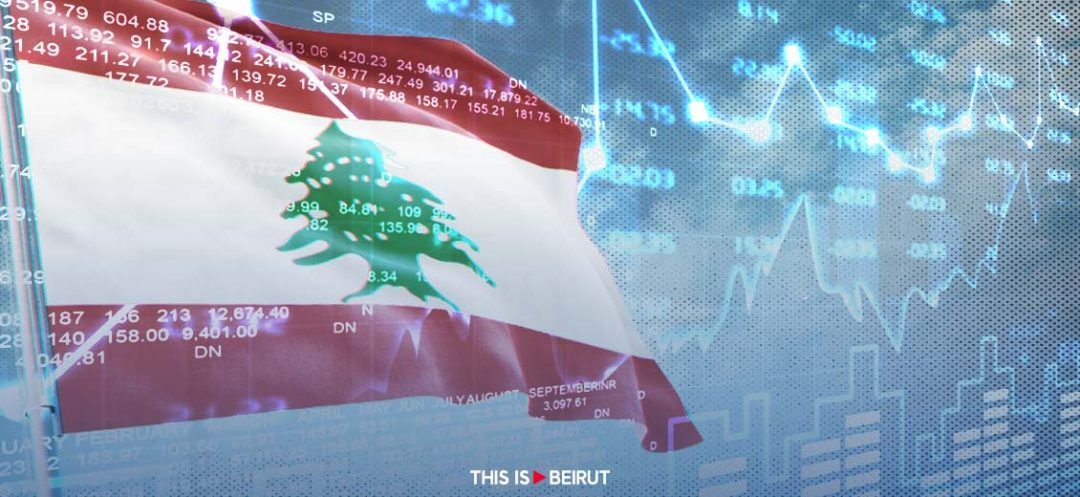
The measures implemented in various economic contexts resemble the plot of an intriguing Ramadan soap opera, but the unfolding events hint that all the protagonists will meet their demise.
The most striking plot twist associated with the series is the writer's decision to increase salaries in the public sector. An undoubtably rightful measure that reflects the harsh reality of government employees who cannot sustain themselves on less than $200 a month amidst rampant inflation and the plummeting value of the Lebanese pound exchange rate.
The move to raise salaries, in response to the escalating cost of living, sparked new concerns about ongoing economic downturn and the attempt to peg salaries to the dwindling dollar. The reason is that the monetary reserves required by the Central Bank of Lebanon to cover these salaries are not available, and necessitate currency printing, which in turn leads to its devaluation against the dollar or gold.
This scenario is reminiscent of the increase in the civil service pay scale that occurred years ago, which ultimately led to a major economic collapse in the aftermath of the crisis.
Had the figures been thoroughly studied before approving the salary scale, Lebanon would have been in a better economic position, possibly preventing the scale's approval altogether. However, given the circumstances, repeating the same mistake just after a few years seems irrational. As the saying goes, "A wise man does not step into the same river twice."
The first time around, we bore the brunt of the crisis, but failed to heed its lessons. Now, with the stability of the dollar exchange rate serving as a psychological safety net for many, the government chose to once again break the glass ceiling of the exchange rate.
The real crisis in this tear-jerking Ramadan soap opera lies in two knots that may not be resolved in the coming days, or even by the end of the holy month.
The first crisis is that the salary increase applies to all employees, regardless of their performance. It is disheartening that we have not yet undertaken the restructuring of the public sector, despite the International Monetary Fund's repeated recommendations to trim government expenditures on salaries and to reevaluate the public sector’s framework to align with Lebanon's actual needs.
For years, we have been discussing the excessively bloated public sector, which is simply unsustainable. There has been indiscriminate recruitment across various administrations, with some employees failing to fulfill their duties or contribute meaningfully to public services. Yet, they continue to draw salaries from citizens' funds and the increasing taxes imposed to cover the newly introduced salary increases.
The second crisis lies in how the Lebanese state now perceives the recent budget, treating it as if it has completely wiped out the deficit as the numbers suggest on paper. However, the truth is that state budget does not account for debt servicing. Since the default incident in 2020, we've become a state that neglects its debt obligations, forgetting that we have debts in the first place. Additionally, with this approach, the state effectively regards its deposits as zeroed out, as it refuses to honor its debts to banks, thus jeopardizing its ability to reimburse depositors.
The bleak and dire situation we are currently facing is perhaps the most perilous episode of Lebanon's riveting Ramadan drama. Yet, as the saying goes, "There are no heroes on horseback, nor any coming saviors." The true heroes of this narrative, those capable of resolving the crises, have seemingly capitulated to the harsh realities at hand
The most striking plot twist associated with the series is the writer's decision to increase salaries in the public sector. An undoubtably rightful measure that reflects the harsh reality of government employees who cannot sustain themselves on less than $200 a month amidst rampant inflation and the plummeting value of the Lebanese pound exchange rate.
The move to raise salaries, in response to the escalating cost of living, sparked new concerns about ongoing economic downturn and the attempt to peg salaries to the dwindling dollar. The reason is that the monetary reserves required by the Central Bank of Lebanon to cover these salaries are not available, and necessitate currency printing, which in turn leads to its devaluation against the dollar or gold.
This scenario is reminiscent of the increase in the civil service pay scale that occurred years ago, which ultimately led to a major economic collapse in the aftermath of the crisis.
Had the figures been thoroughly studied before approving the salary scale, Lebanon would have been in a better economic position, possibly preventing the scale's approval altogether. However, given the circumstances, repeating the same mistake just after a few years seems irrational. As the saying goes, "A wise man does not step into the same river twice."
The first time around, we bore the brunt of the crisis, but failed to heed its lessons. Now, with the stability of the dollar exchange rate serving as a psychological safety net for many, the government chose to once again break the glass ceiling of the exchange rate.
The real crisis in this tear-jerking Ramadan soap opera lies in two knots that may not be resolved in the coming days, or even by the end of the holy month.
The first crisis is that the salary increase applies to all employees, regardless of their performance. It is disheartening that we have not yet undertaken the restructuring of the public sector, despite the International Monetary Fund's repeated recommendations to trim government expenditures on salaries and to reevaluate the public sector’s framework to align with Lebanon's actual needs.
For years, we have been discussing the excessively bloated public sector, which is simply unsustainable. There has been indiscriminate recruitment across various administrations, with some employees failing to fulfill their duties or contribute meaningfully to public services. Yet, they continue to draw salaries from citizens' funds and the increasing taxes imposed to cover the newly introduced salary increases.
The second crisis lies in how the Lebanese state now perceives the recent budget, treating it as if it has completely wiped out the deficit as the numbers suggest on paper. However, the truth is that state budget does not account for debt servicing. Since the default incident in 2020, we've become a state that neglects its debt obligations, forgetting that we have debts in the first place. Additionally, with this approach, the state effectively regards its deposits as zeroed out, as it refuses to honor its debts to banks, thus jeopardizing its ability to reimburse depositors.
The bleak and dire situation we are currently facing is perhaps the most perilous episode of Lebanon's riveting Ramadan drama. Yet, as the saying goes, "There are no heroes on horseback, nor any coming saviors." The true heroes of this narrative, those capable of resolving the crises, have seemingly capitulated to the harsh realities at hand
Read more



Comments